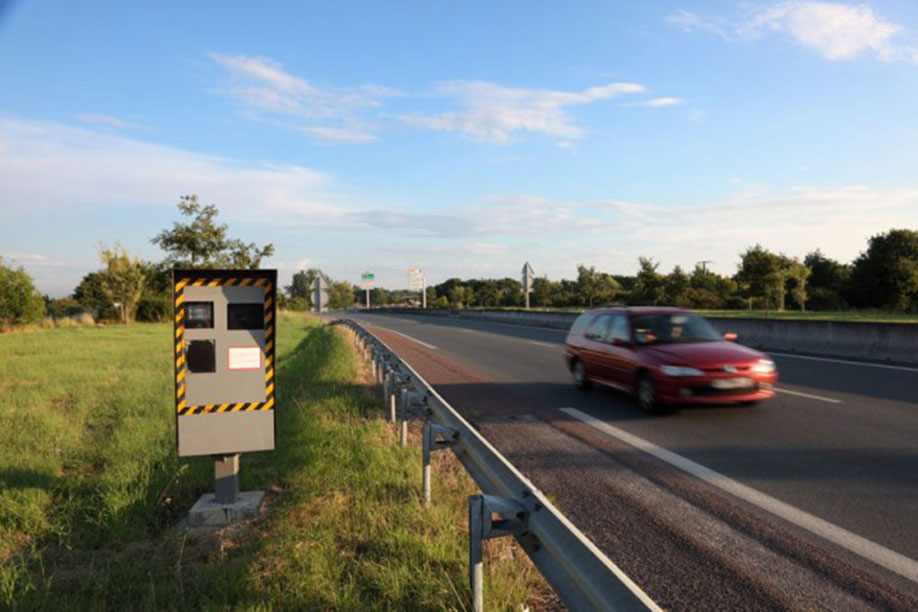Violating a speed limit in Germany can cost you between 15 and 600 euros. Such fines are also very severe in the Czech Republic, Lithuania and Slovakia. What’s even worse is that these high amounts may be doubled by unfavourable currency conversion. How can this be avoided?

People take plenty of photos during their trips abroad. However, the worst ones may arrive a few weeks after returning home. These photos show a car, the driver’s face, as well as the license plates. Included in the surprising envelope is another, more important, document; a declaration of a speed violation and a fine. The amounts are usually quite large and are expressed in a foreign currency.
Catch me, if you can
The initial reaction is bitterness and anger. Then comes denial and reaction. This comes in the form of browsing the internet to find out what can happen if you don’t react to the payment demands. People usually seek credible sources, such as legal websites, but also stories of other people who have been in the same situation.
Usually, people aren’t in a rush to get rid of, for example, 100 euros. After all, we all have more urgent needs and much better ways to spend that kind of money. People also find it easy to make excuses like, “The road was empty,” “I wasn’t speeding that much,” or “I usually respect speed limits.” Therefore, they want to find a way to get away from the problem.
Scary return
Drivers from Poland usually receive payment demands from abroad, rather than a speeding ticket. If such a demand is ignored, it will expire within one or two years. This scenario sounds very optimistic. However, there are at least two alternative scenarios and they’re not quite as positive.
As soon as you return to the country, where the demand was issued, you can be met with trouble. All it takes is a minor car crash or a routine control and policemen may demand that you pay your debt. Moreover, don’t expect a lack of cash to help.
This is not the only unpleasant consequence of ignoring a speed limit violation notification. A payment demand can be converted into a speeding ticket and the local court may receive a request to punish the person who committed the violation. Nevertheless, the requesting party may assume that the matter is not worth the effort. This is because the documents have to be translated by a sworn translator. The same thing refers to testimonies of potential witnesses. However, such trials are not an exception. Foreign institutions tend to reach Polish drivers through vindicatory companies, even in the case of unregulated parking fees.
For a penalty expressed in euro, pay in euro
What if the driver wants to pay? Payment demands contain an account name and an IBAN. All that should be done is transfer the money. You can do this from a regular bank account in zloty. However, your bank may charge extra fees for currency conversion and transferring money abroad. In extreme cases, the amount of additional fees can be higher than the penalty alone. A less expensive solution is to use the SEPA transfer. In this case, the fee is at the level of 5 PLN. Unfortunately, this service is only available in some banks. There is but another solution which is also inexpensive and gives you direct access to currency transfers – you can use the services of an online currency exchange office. In Cinkciarz.pl, you can create an online user account and free of charge, buy currency with a favourable exchange rate and order a transfer for a 5 PLN fee.
Slow down
There’s an unwritten law in Poland that crossing a speed limit by less than 10 km/h usually goes unpunished. However, this is not a thing in Germany. Due to their respect for order, they give speeding tickets for crossing a speed limit by even two or three kilometres.
Speeding tickets in Poland are within the range of 50 PLN – 500 PLN. In Germany, there are slight differences between the regulations concerning urban and rural areas. Fee rates in Germany are as follows: up to 10 km/h - 15 euros, 11-15 km/h - 25 euros, 16-20 km/h - 70 euros, 21-25 km/h - 80 euros, 26-30 km/h - 95 euros, 31-40 km/h - 160 euros, 41-50 km/h - 240 euros, 51-60 km/h - 440 euros, above 60 km/h - 600 euros. The Slovakian highway code is also strict for those who violate speed limits and the fee rates are as follows (rural areas): up to 6 km/h – warning, 6-15 km/h - 20 euros, 15-25 km/h - 40 euros, 25-29 km/h - 50 euros, 29-35 km/h - 100 euros, 35-40 km/h - 200 euros, 40-45 km/h - 300 euros, 45-50 km/h - 400 euros, 50-55 km/h - 500 euros, 55-60 km/h - 650 euros, 60 km/h and higher - 650 euros, plus a summons to appear in court. You should also respect speed limits in the Czech Republic where you pay 1000 koruna for driving 20 km/h too fast and 2500 koruna for crossing a speed limit by 20-30 km/h. You also need to be careful when using the motorway, because if you don’t have a valid vignette, you will pay a 10,000 koruna fine. In Lithuania, each kilometre above the speed limit will cost you 3 euros.

